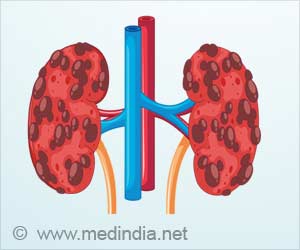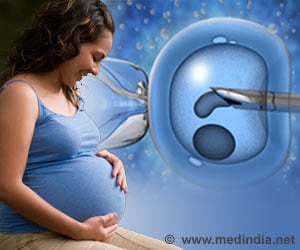A new test for identifying a mismatch between the blood of a pregnant woman and her baby is accurate, feasible, and could substantially reduce unnecessary treatment.
A new test for identifying a mismatch between the blood of a pregnant woman and her baby is accurate, feasible, and could substantially reduce unnecessary treatment, finds a study published on bmj.com today.
Problems can occur if a woman’s blood is Rhesus (Rh) negative but she is carrying a baby whose blood is Rh positive. This is because Rh positive blood contains a substance called RhD antigen, which passes into the mother’s blood at birth. The mother then makes antibodies against the RhD positive blood.There are usually no problems during a woman’s first pregnancy, but if she goes on to have another RhD positive baby, these antibodies cross the placenta and destroy the baby’s red blood cells, causing a blood disorder known as haemolytic disease that can be serious and even fatal.
To prevent this, all pregnant women have their blood tested at their first antenatal visit. RhD negative women are given one or two antiserum injections (anti-RhD immunoglobulin, derived from blood products) during the pregnancy.
However, about 38% of RhD negative women are carrying an RhD negative baby, so they receive this treatment unnecessarily.
So researchers at the NHS Blood and Transplant Centre in Bristol assessed a new test for predicting a baby’s blood group by “typing” its DNA in the plasma of RhD negative pregnant women.
They analysed blood samples from 1,997 women taken at or before the 28 week antenatal visit. In 96% of cases, the correct RhD phenotype of the baby was predicted by the genotyping tests. This was confirmed by comparing the results obtained from cord blood samples taken at delivery.
Advertisement
In 3.4% of cases results were either unobtainable or inconclusive.
Advertisement
The results show that fetuses of RhD negative women can be genotyped with an acceptable level of accuracy and a low rate of false positive results, say the authors. Testing would avoid unnecessary treatment in about 38% of RhD negative women and avert the associated discomfort, inconvenience, and risk of exposure to donor blood products that such injections entail, they conclude.
These findings are important because they demonstrate the reliability of the automated technique and the feasibility of large scale antenatal testing, writes Sailesh Kumar from Queen Charlotte’s and Chelsea Hospital in an accompanying editorial.
He concludes: “If these techniques are shown to be as reliable earlier in pregnancy the arguments for recommending universal testing will be compelling.”
Source-BMJ
SRM/L











